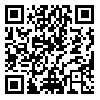Volume 27, Issue 3 (Autumn 2025)
Advances in Cognitive Sciences 2025, 27(3): 0-0 |
Back to browse issues page
Ethics code: IR.IUMS.REC.1399.326
Download citation:
BibTeX | RIS | EndNote | Medlars | ProCite | Reference Manager | RefWorks
Send citation to:



BibTeX | RIS | EndNote | Medlars | ProCite | Reference Manager | RefWorks
Send citation to:
Aminzadeh H, Moradi A, Farsinejad Marj, Hassani Abehrian P, Edalat A. Evaluating the effects of self-attachment therapy on the dynamics of the anterior-striatum circuit in the face of facial emotions: with a causal dynamic modeling approach. Advances in Cognitive Sciences 2025; 27 (3)
URL: http://icssjournal.ir/article-1-1753-en.html
URL: http://icssjournal.ir/article-1-1753-en.html
1- Sahid Beheshti University
2- Kharazmi University and the Institute of Cognitive Sciences Studies
3- Tehran University
4- Institute for Cognitive Science Studies
5- Imperial College London
2- Kharazmi University and the Institute of Cognitive Sciences Studies
3- Tehran University
4- Institute for Cognitive Science Studies
5- Imperial College London
Abstract: (1148 Views)
Introduction: This study examines the effects of Self-Attachment Therapy (SAT) on the dynamics of the brain’s reward network, particularly in the ventral striatum and prefrontal cortex (PFC), in individuals with Major Depressive Disorder (MDD). MDD is associated with impaired emotional and cognitive processing, leading to a bias toward negative emotions and difficulty in recognizing positive emotions. Attachment issues, especially insecure attachment, are linked to a higher risk of depression. SAT focuses on strengthening secure attachment and emotional regulation, aiming to improve emotional responses in depressed individuals.
Methods: In this study, 20 patients with MDD underwent SAT. fMRI data were collected at three stages: before treatment, immediately after treatment, and three months post-treatment during an emotional face-processing task (happiness, sadness, and fear). Using Dynamic Causal Modeling (DCM) and Bayesian analysis, changes in the effective connectivity of the brain’s reward network and the impact of treatment were analyzed.
Results: Findings indicated that, before treatment, emotional processing was primarily driven by the Nucleus Accumbens (NAc). Post-treatment, there was an increase in connectivity between the NAc and the PFC, reflecting improved emotional regulation and resilience. These changes suggest a reorganization of neural circuits following SAT.
Conclusion: The results provide new evidence for the role of the brain’s reward network in treating depression and improving emotional processing. This study highlights the potential for developing targeted and personalized therapeutic approaches for individuals with MDD.
Methods: In this study, 20 patients with MDD underwent SAT. fMRI data were collected at three stages: before treatment, immediately after treatment, and three months post-treatment during an emotional face-processing task (happiness, sadness, and fear). Using Dynamic Causal Modeling (DCM) and Bayesian analysis, changes in the effective connectivity of the brain’s reward network and the impact of treatment were analyzed.
Results: Findings indicated that, before treatment, emotional processing was primarily driven by the Nucleus Accumbens (NAc). Post-treatment, there was an increase in connectivity between the NAc and the PFC, reflecting improved emotional regulation and resilience. These changes suggest a reorganization of neural circuits following SAT.
Conclusion: The results provide new evidence for the role of the brain’s reward network in treating depression and improving emotional processing. This study highlights the potential for developing targeted and personalized therapeutic approaches for individuals with MDD.
Keywords: Major depressive disorder, Self-Attachment Therapy, Brain reward network, Dynamic Causal Modeling, functional magnetic Resonance Imaging
Type of Study: Research |
Received: 2025/01/11 | Accepted: 2025/03/2 | Published: 2025/03/13
Received: 2025/01/11 | Accepted: 2025/03/2 | Published: 2025/03/13
Send email to the article author
| Rights and permissions | |
 |
This work is licensed under a Creative Commons Attribution-NonCommercial 4.0 International License. |


